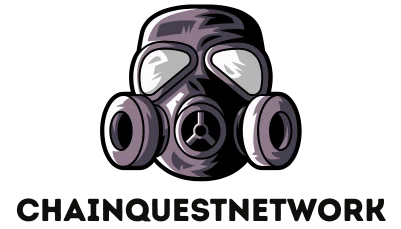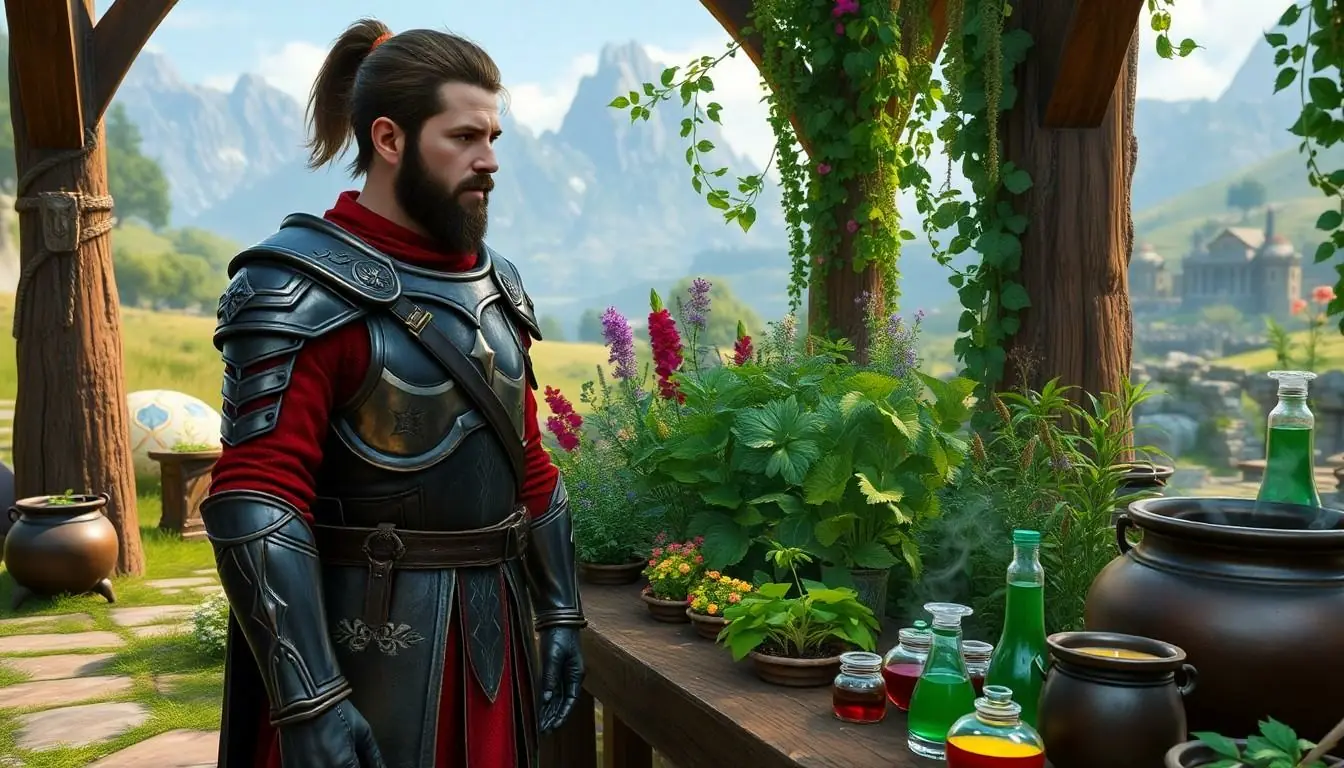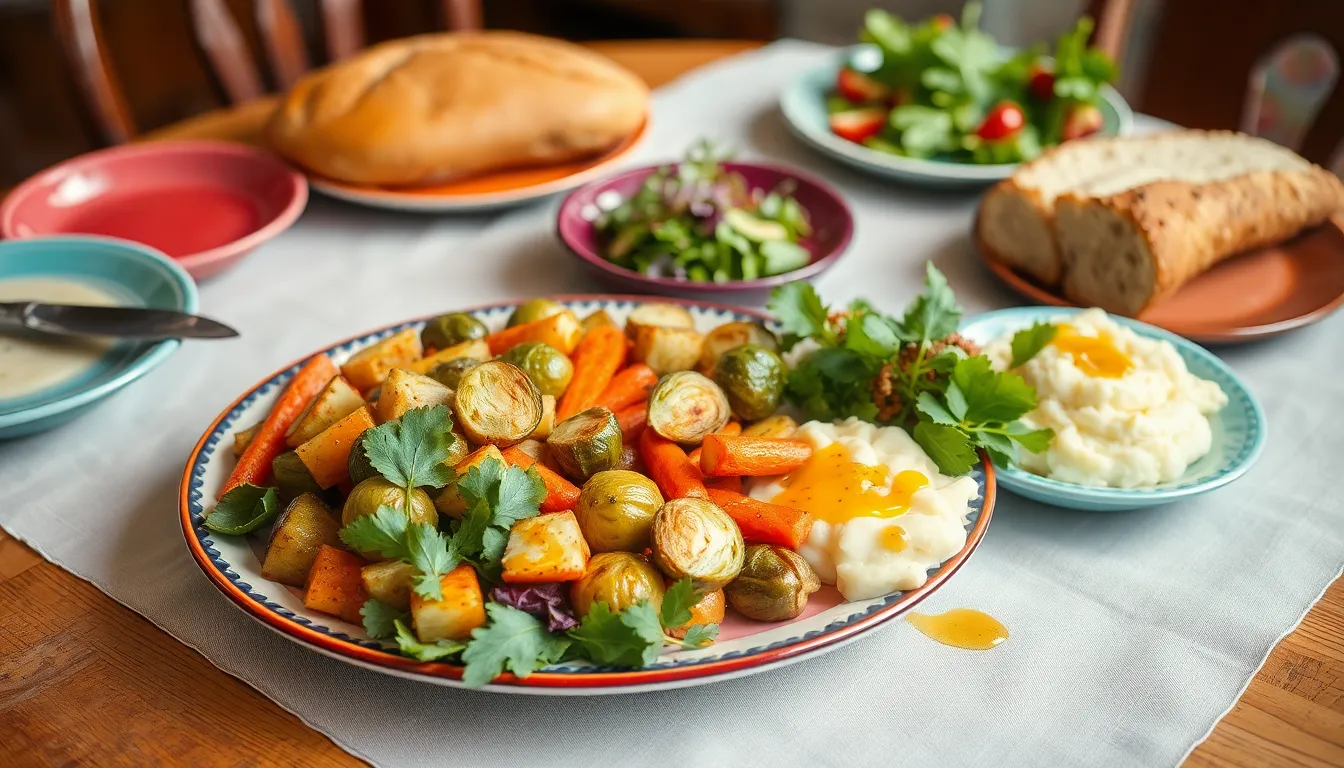In the vibrant world of RuneScape 3, mastering Herblore can feel like trying to brew a potion with a missing ingredient—frustrating yet oh-so-rewarding. Whether players are looking to mix potions for combat or simply want to impress their friends with their potion-making prowess, understanding the ins and outs of Herblore training is essential.
Table of Contents
ToggleOverview of RS3 Herblore Training
Herblore training in RuneScape 3 allows players to create a wide array of potions, boosting their combat effectiveness or assisting in various activities. This skill involves gathering herbs, combining them with other ingredients, and leveling up through potion creation. Each potion offers specific benefits, making the selection of which to create crucial for maximizing effectiveness in gameplay.
Achieving higher Herblore levels unlocks new potions, recipes, and opportunities for profit. Start by growing herbs or purchasing them from the Grand Exchange or specific NPCs. Players can also complete quests for additional herbal resources. Understanding the potions available at each level is essential, as it influences training speed and efficiency.
Training methods vary significantly. The basic option starts with making low-level potions such as Attack potions, requiring minimal ingredients. As skills progress, players can use more complex recipes, such as Super Restore potions, enhancing training profitability. Utilizing the Herblore habitat can provide access to herbs as well.
Experience rates improve with the use of various boosts. Items like the Tome of Experience and bonus XP weekends can enhance training outcomes. Players often aim for specific milestones that yield substantial XP, such as level 99, providing access to the highest tier potions.
Keeping track of ingredient availability and market prices supports efficient training plans. With strategic planning, players can optimize their routes to gather resources while minimizing downtime. Focusing on resource management and training methods ensures a smooth Herblore experience, leading to skills that enhance overall gameplay in RuneScape 3.
Training Methods
Various methods exist for training Herblore that cater to players at different levels. Players can maximize their experience gains by selecting the right techniques for their current skill level.
Potion-Making Techniques
Utilizing potion-making techniques allows players to create a variety of potions. Starting with basic potions such as Attack and Strength potions, players gain experience while using low-cost materials. As expertise grows, players can progress to advanced potions like Saradomin brews and super restore potions. Advanced potions require more complex ingredients but offer greater experience rewards and significant benefits in combat. Choosing potions based on market demand can also increase profits, especially for high-level potions. Players often combine potion-making with daily activities to streamline their training and maximize efficiency.
Herb Cleaning Processes
Herb cleaning processes play a vital role in Herblore training. Players start by gathering raw herbs, which often require cleaning before they can be used in potion-making. Cleaning herbs not only provides experience but also yields useful materials for combining with other ingredients. Players find that cleaning herbs like Guam and Tarromin yields instant experience and prepares them for further crafting. Experience can be accelerated by using methods such as the Herblore Habitat, where players can find a steady supply of herbs. Moreover, participating in herbalism events helps refine cleaning skills and enhances overall efficiency in training.
Best Herbs for Training
Choosing the right herbs enhances Herblore training efficiency. Focus on selecting low-level and high-level herbs to maximize experience gains.
Low-Level Herbs
Low-level herbs serve as effective training materials. Players commonly use Guam, Marrentill, and Tarromin for basic potions like Attack, Strength, and Energy. Specifically, Guam provides experience through the creation of Attack potions at level 1. Marrentill, accessible at level 5, allows players to craft Strength potions. Tarromin becomes available at level 10, enabling Energy potions that restore run energy. Players should gather these herbs from the ground or through the Herblore Habitat, where herb patches flourish. Efficiently cleaning these herbs yields consistent experience, supporting players in leveling up swiftly.
High-Level Herbs
High-level herbs unlock more advanced potion crafting. Players prioritize herbs like Torstol, Snapdragon, and the elusive Lantadyme. At level 30, Lantadyme opens the door for creating Saradomin brews, enhancing health and offering significant benefits. Players gain valuable experience when using Torstol, available at level 85, for high-tier potions. Snapdragons can be crafted into Super restore potions at level 61, offering both health and prayer restoration. Maximizing the usage of these herbs significantly boosts overall training efficiency and profitability. Players should monitor market trends for these herbs to ensure a cost-effective training experience.
Experience Gains and Efficiency
Experience gains in Herblore significantly impact a player’s progress. Various potions yield different XP rates, making some more efficient for training than others.
XP Rates Comparison
The choice of potions directly affects XP rates in Herblore. Basic potions like Attack and Strength offer lower XP per potion, while advanced options such as Saradomin brews provide higher rewards. Creating potions yields approximately 20 to 200 XP depending on the potion’s complexity. For instance, players gain around 60 XP per potion with Guam potions but can earn up to 200 XP with the more intricate Saradomin brew. By understanding these differences, players can strategically plan their training path to achieve maximum efficiency.
Tips for Maximizing Efficiency
Players can enhance training efficiency through several strategies. Prioritizing valuable herbs is crucial for higher XP gains. Gathering herbs from the ground or purchasing them at optimal prices can significantly reduce training costs. Regularly participating in the Herblore Habitat offers additional resources, allowing players to stock up on essential materials. Utilizing experience-boosting items like the Tome of Experience further accelerates XP accumulation. Finally, keeping track of market trends on potions and herbs helps players maintain a cost-effective approach while maximizing their efficiency in Herblore training.
Conclusion
Mastering Herblore in RuneScape 3 opens up a world of possibilities for players. By creating potions that enhance combat and other activities, they not only improve their gameplay but also showcase their skills. With various training methods available, players can choose the most effective strategies tailored to their levels.
Gathering the right herbs and tracking market trends can significantly boost both efficiency and profitability. As players progress through the levels, the rewards become even more enticing. By investing time and effort into Herblore training, players can elevate their overall experience in the game, making it a worthwhile endeavor for any serious adventurer.







